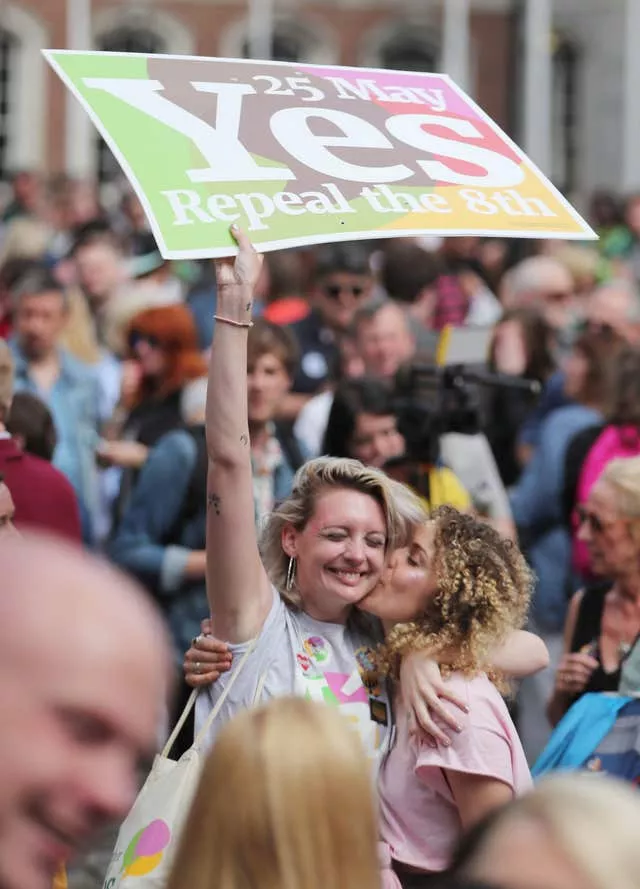More than 200 women and girls travelled to Britain for abortions last year, an increase compared to 2020, the latest figures show.
The figures show that 206 women and girls with addresses in the Republic of Ireland sought abortion care, with a further 161 travelling from Northern Ireland.
The data was published by the UK Department of Health and Social Care on Tuesday.
The number of pregnant women and girls seeking abortion care from Northern Ireland significantly dropped, with 371 travelling in 2020, compared to 161 last year.
The number of women who travelled from Ireland to the UK for an abortion increased last year compared to 2020. A total of 206 women travelled for abortion care in 2021, an increase of ten.
The statistics were published by @ONSAdvertisement— Cate McCurry (@CateMcCurry) June 21, 2022
However, the number of women and girls travelling from the Republic increased by ten compared to 2020, when there were travel restrictions in place.
The vast majority of women from the Republic were over 12 weeks pregnant and ineligible for termination services in Ireland. Some 50 per cent were foetal anomaly cases.
Ireland has the highest number of women who travelled to England for abortion care services, accounting for 33 per cent.
The number of women who travelled from Northern Ireland accounted for 26 per cent.
Irish Family Planning Association (IFPA) chief executive Niall Behan said: “Legal abortion has transformed reproductive healthcare in Ireland, but 206 women travelled to the UK for abortion care in 2021.
“This tells us, unequivocally, that the law is not good enough. The 2018 Act is denying care to women and girls and forcing them to seek abortion services in the UK. This is an unacceptable injustice.
“We know from our clients that exclusion from access to termination services in Ireland is traumatising.
“We know also that denial of care because of the gestation limit disproportionately burdens the most vulnerable, marginalised and disadvantaged. Exclusions from essential healthcare cause harm.
“No-one should have to leave Ireland for abortion care.
“We know from our services that the law is also forcing some who present at under 12 weeks of pregnancy to travel outside of Ireland for abortion services.
“The mandatory three-day wait means that a person who presents after 11 weeks and four days cannot be provided with abortion care in Ireland.”
Ireland’s abortion laws, which were legalised following a referendum in 2018, are under review.

A medical abortion is available up to 12 weeks, but abortions thereafter are only allowed if there is a serious threat to the life or health of the mother or where two clinicians agree there is a fatal foetal abnormality.
The figures also show that three teenagers under the age of 16 travelled from the Republic to Britain for an abortion, while five teens aged 16 to 17 also travelled.
A total of 11 teenagers under the age of 18 travelled from Northern Ireland for an abortion last year.
The figures show that Dublin had the highest number of women and girls travelling to Britain, with 75 women from the capital. A total of 27 women and girls registered their address in Cork, while the third highest was in Galway, with 14 women travelling to England and Wales.
All abortions were privately funded.
Abortion legislation in Northern Ireland was liberalised in 2019 following laws passed by Westminster at a time when the powersharing government at Stormont had collapsed.
But while individual health trusts in Northern Ireland offer services on an ad-hoc basis, the Department of Health has yet to centrally commission the services due to a political impasse at Stormont on the issue.
The Northern Ireland Secretary Brandon Lewis recently enacted a law that empowered him to directly commission abortion services in the region.
Between March 2020 and January 31st 2022, some 2,794 abortions took place in Northern Ireland.
Mr Lewis recently told a Westminster committee that the abortion services in Northern Ireland “fall far short” of what is required by law.
“Women and girls are still unable to access high quality abortion and post-abortion care locally in Northern Ireland, the same way women can in the rest of the UK,” Mr Lewis added.
“That’s because the Northern Ireland Department of Health has failed to make progress on this issue.
“The commissioning of full abortion services consistent with the conditions set out in 2020 regulations has not taken place.
“Every day women and girls are taking place in vulnerable situations and I will not allow this situation to continue.”







